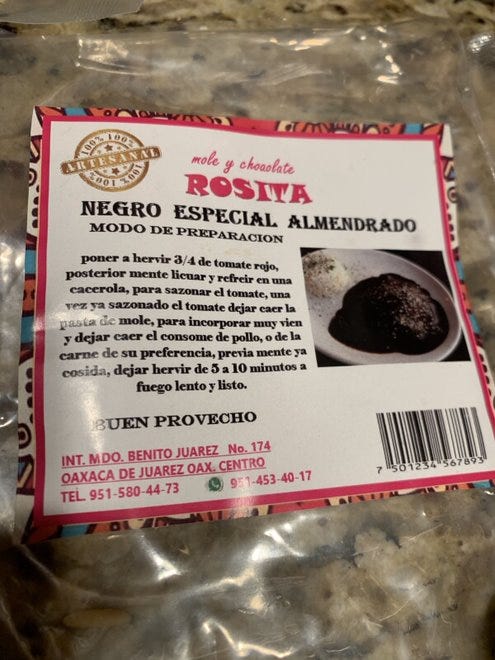Unpopular Science 241117
Mostly unconventional thoughts on recent reading relevant to personal science
Good personal scientists are open-minded and curious about a lot of things. This week is a brief summary of some of the things I’ve learned recently that might be interesting to others who want to understand more about the world around them.
Food and Culture
People didn’t smile in old photos because they didn’t in paintings either and culturally it was a sign of drunkeness or lewd behavior. That changed with movies, which used smiles to capture emotion.
In your neighborhood right now there are literally dozens of people (usually elderly women) who have the time and enjoy cooking. Meanwhile there are frazzled overworked people who put up with subpar or overly expensive food because they don’t have the time, energy, or skills to prepare it. Why can’t those two groups get together?
Well after reading how some people are selling home cooked meals, I want try to buy freshly-made Oaxaca-style mole negro from Facebook Marketplace. I’ll use ChatGPT to configure a good prompt.
Me preguntaba si puedo comprar mole negro auténtico estilo Oaxaca. Estoy buscando uno que sea recién hecho y estoy dispuesto a pagar $10 por una libra. Vivo cerca de Southcenter y puedo reunirme ahí en cualquier momento que le sea conveniente.
While staying at an Airbnb in Mexico earlier this year I had a wonderful experience paying a local high school girl to cook a fresh meal for us in our kitchen. My awkward language skills would have ordinarily made this difficult but ChatGPT enabled me to express exactly what we wanted.
Health and Medicine
The Chinese Boao Hope Lecheng Medical Tourism Pilot Zone in Hainan, China is authorized by the government to experiment with a more streamlined version of medical device and therapeutic approval. Anything that’s been approved by a reputable international regulator is automatically allowed, giving domestic patients access to treatments that would otherwise require international travel. (Via MR)
From UC Berkeley economics grad student Woojin Kim: Political polarization in medicine:
In 1999-2009, Physicians tended to be 15% more right-leaning than the voters in their region, but by the 2010s the gap had slipped to 6%.
“Even among physicians in the same specialty and location treating patients for the same condition, Republican physicians spend 6% more, especially on elective procedures” because “Republican physicians adhere less to clinical guidelines”.
Meanwhile:
Americans over 50 mostly (74%) have little or no trust in health information generated by AI. Other categories that trusted it less are women and those with less education or lower income, or who had not had a health care visit the past year. Should you trust AI generated health information? I mean no, you should double check, but I’d say the same thing about doctors.
according to the University of Michigan National Poll on Healthy Aging.
Podcasts worth listening to
I’m a sucker for deep-dive podcasts about issues of linguistics and translation, so I enjoyed this Within Reason podcast discussion with a linguistics expert on the subtleties involved in translating the Book of Genesis. For example, that story about Eve being made out of Adam’s rib: I hadn’t realized that the Hebrew word translated into English as “rib” isn’t necessarily a surgical term but could also mean a part of the body, including the Jewish Midrash idea that God’s original human had four legs and four arms and was split in half.
The Free Press Bari Weiss interviewed Peter Thiel on YouTube. My brief takeaways:


